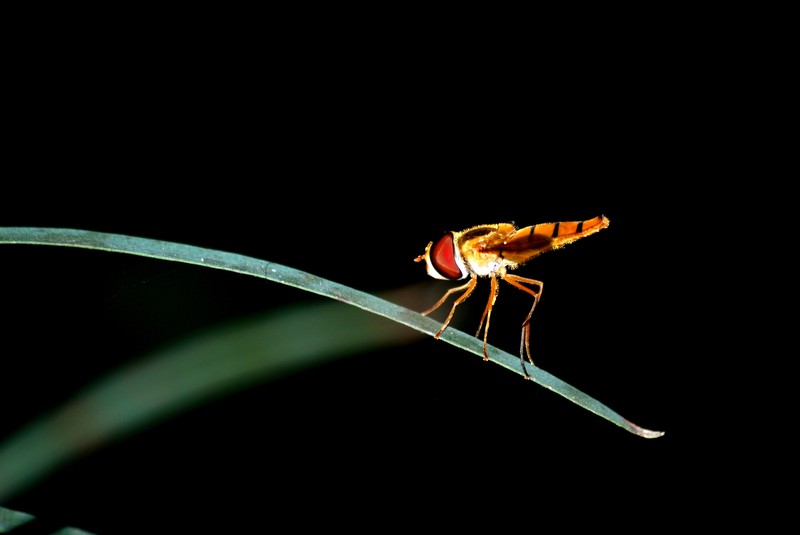The big-eyed bug is a beneficial insect. The adult big-eyed bug and the big-eyed larva eat garden pests including aphids, cabbage loopers, caterpillars, chinch bugs, flea beetles, leafhoppers, Mexican bean beetles, spider mites, thrips, whiteflies, and the eggs of aphids, corn earworms, and mites.
Big-eyed bugs are common in Western North America.
Scientific name: Genus Geocoris
Good Products for Pest and Disease Control at Amazon:
- Garden Safe Snail and Slug Bait
- Bonide Sulfur Fungicide
- Monterey BT Caterpillar Killer
- Neem Bliss 100-% Cold Pressed Neem Oil
- Safer Brand Insect Killing Soap
- PyGanic Botanical Insecticide

How to identify big-eyed bug
The big-eyed bug has a broad head and wide-set bulging eyes. Adult big-eyed bugs are black, grey, or brown and about ⅛ to ¼ inch long. They have clear wings that overlap on their backs. Nymphs are smaller but do not have wings.
Big-eyed bugs have piercing-sucking mouthparts and feed by stabbing their prey and sucking out the internal juices. An adult big-eyed bug can eat as many as 80 spider mites in a day; a larva will eat up to 1600 mites as it matures. Nymphs and adults can survive on nectar and honeydew when prey is scarce.
Big-eyed bug life cycle
Female big-eyed bugs lay two or three eggs each day on stems and leaf undersides beginning in spring. The eggs hatch in about two weeks and begin to feed immediately. Nymphs develop for four to six weeks and then molt into adults. Adults overwinter in garden debris and weedy areas.
How to attract big-eyed bugs to the garden
Attract big-eyed bugs to the garden by planting goldenrod, pigweed, and soybeans. Big-eyed bugs feed on plant sap and nectar in addition to insect pests. A diversity of perennial plants will give them places to shelter and find food.
Related articles:
Vegetable Garden Organic Pest Control
Vegetable Garden Diseases Problem Solver
Vegetable Garden Organic Weed Control
Garden Planning Books at Amazon:
- Vegetable Garden Almanac & Planner
- Kitchen Garden Grower’s Guide Vegetable Encyclopedia
- Vegetable Garden Grower’s Guide
- Tomato Grower’s Answer Book



